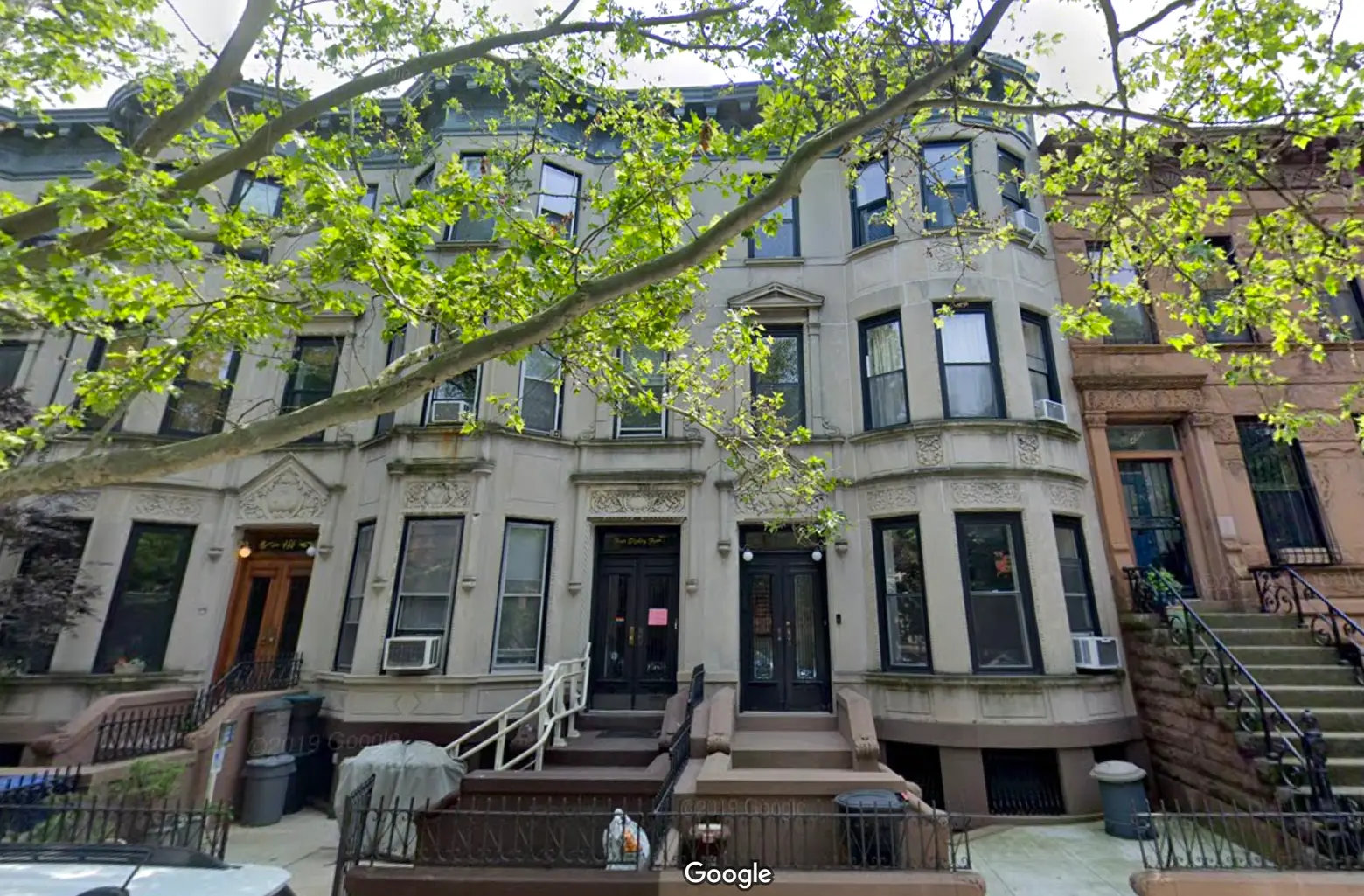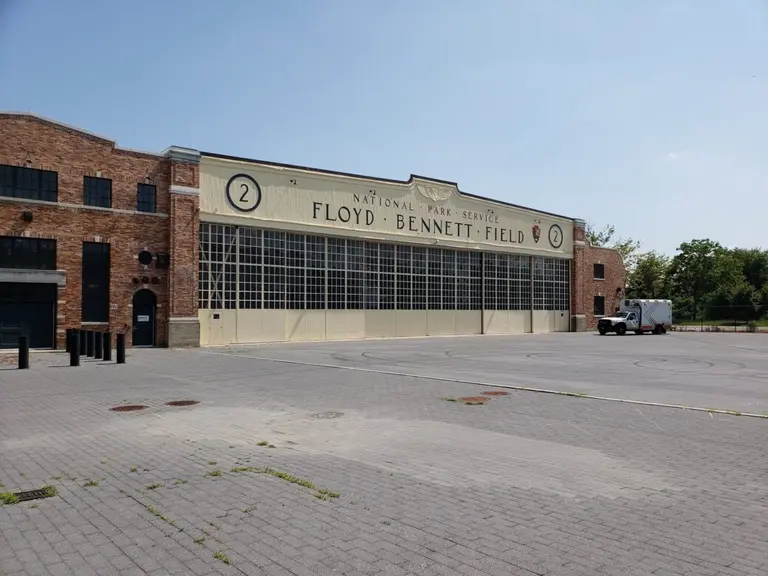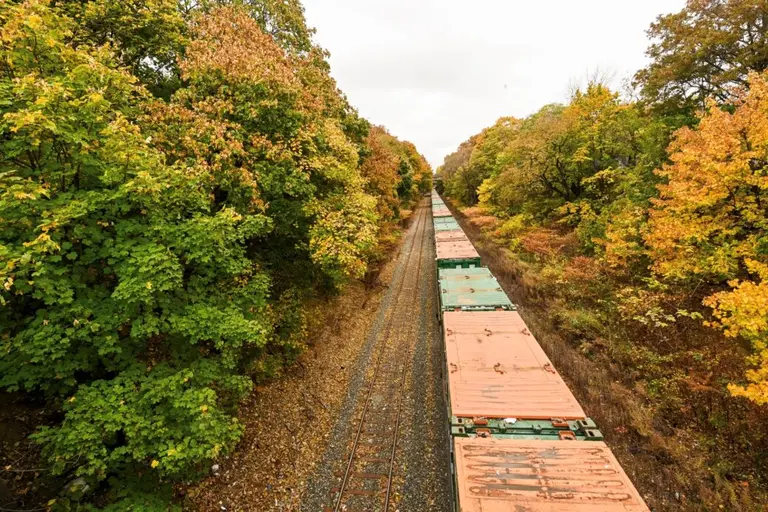Park Slope’s Lesbian Herstory Archives becomes first official LGBTQ+ landmark in Brooklyn

Street view of the Lesbian Herstory Archives at 484 14th Street in Park Slope; © Google Maps
A row house in Brooklyn that is home to the country’s oldest and largest collection of lesbian-related historic material is New York City’s newest landmark. The Landmarks Preservation Commission (LPC) on Tuesday voted to designate the Lesbian Herstory Archives building as an individual landmark, the first in Brooklyn designated for its connection to the LGBTQ+ community.
“I am delighted Commission has designated the home of the Lesbian Herstory Archives, an important community space and a nationally important collection of LGBTQ+ historical materials,” LPC Chair Sarah Carroll said.
“For over 30 years, the building has been the site of the Archives’ essential role in preserving and telling the stories of a mostly unseen community of women, including many who have contributed to America’s cultural, political, and social history. This designation draws attention to the importance of the Lesbian Herstory Archives to New York City and the country’s history and to LGBTQ+ communities.”
Located at 484 14th Street in Park Slope, the three-story row house has immense cultural significance to the LBGTQ+ community for sharing the story of “a mostly unseen community of women who contributed to America’s cultural, political, and social history,” according to the LPC.
Designed by Axel Hedman for the Prospect Park West Realty Company in 1908, the Renaissance Revival row house was originally built as a two-family home. The row house is already located within the Park Slope Historic District which was designated in 1973.
Entirely volunteer-run and not-for-profit, the Lesbian Herstory Archives was founded in 1974 by activists Joan Nestle, Deborah Edel, and others in an attempt to bring light to lesbian history and create a physical collection of cultural artifacts for analysis and community gathering.
Founded at a time when the LGBTQ+ community faced severe social and legal discrimination, the Archives strived to normalize historic lesbian artifacts as essential pieces of American history.
The project’s use of “herstory” represents its intentionally feminist nature, rejecting the patriarchy and promoting inclusiveness amongst the group member’s diverse backgrounds.
“The lesbian community has played an immeasurable role in the LGBTQ+ rights movement and will forever be a vital piece of New York City’s past, present, and future,” Mayor Eric Adams said.
“By designating the Lesbian Herstory Archives – the first individual landmark in Brooklyn designated specifically for its LGBTQ+ significance – we pay tribute to this vital part of our collective history. This landmark reflects the incredible stories of lesbians, who, against all odds, fought for and achieved the equality and acceptance they deserved.”
The Archives contain historic materials starting from the 1950s to the present day that have been donated by lesbians themselves. Items include periodicals, files on lesbian activists and community groups, audio and visual materials, oral histories, and the personal and professional papers of lesbians from diverse cultural, ethnic, and class backgrounds, according to the LPC.
The Park Slope row house was purchased by the Archives in 1991 after the collection had outgrown its space in Nestle and Edel’s Upper West Side apartment. Over the next year, the organization renovated the building, transforming it into a new headquarters for the group and implementing new accessibility and security features.
Since then, the Archives have significantly expanded their collection and gained national recognition for their vital role as a community space, educational center, and hub for lesbian history and culture.
In 2015, the city designated the Stonewall Inn, the first landmark in the city based solely on its LGBTQ+ history. In 2019, the commission voted to designate the Gay Activists Alliance Firehouse, the Women’s Liberation Center, the Lesbian, Gay, Bisexual & Transgender Community Center, Caffe Cino, James Baldwin’s Upper West Side home, and the Staten Island home of Audre Lorde.
And a vote will be held in the coming weeks to designate Julius’, the city’s oldest gay bar, as a city landmark.
“We’re thrilled that the Lesbian Herstory Archives, a women-owned building, has been officially recognized as a New York City Landmark, further solidifying the importance of including LGBTQ history in the broader narrative of American history,” Amanda Davis, the manager of the NYC GBT Historic Sites Project, said in a statement.
“The designation — the first for an LGBTQ site in Brooklyn — acknowledges the pioneering lesbian women who, nearly 50 years ago, came together to create an affirming space for their community. Perhaps most significantly, these women reclaimed their past by saving and preserving lesbian-related records, photographs, and ephemera for future generations of queer women.”
RELATED:



























